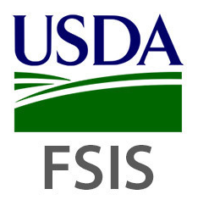USDA Modernizes 30+ Year Old Genetic Engineering Rule

Yesterday, U.S. Agriculture Secretary Sonny Perdue announced a final rule that updates and modernizes the U.S. Department of Agriculture (USDA)’s biotechnology regulations under the Plant Protection Act.
USDA’s previous regulations focused on whether a plant pest was used in the development of a plant using genetic engineering and required a lengthy deregulation process for those plants that did not pose increased pest risk. After 30 years of experience, USDA’s Animal Plant Health Inspection Service (APHIS) regulatory scientists know that simply using a plant pest in the development of a plant does not necessarily cause the plant to pose a risk to plant health. Thus, the final rule puts in place a more efficient process to identify plants that would be subject to regulation, focusing on the properties of the plant rather than on its method of production. APHIS will evaluate plants developed using genetic engineering for plant pest risk under a new process called a regulatory status review, regulating only those that plausibly pose an increased plant pest risk.
The final rule, The Sustainable, Ecological, Consistent, Uniform, Responsible, Efficient (SECURE) rule, will bring USDA’s plant biotechnology regulations into the 21st century by removing duplicative and antiquated processes in order to facilitate the development and availability of these technologies through a transparent, consistent, science-based, and risk-proportionate regulatory system.
The SECURE rule, says USDA, will help provide America’s farmers access to these critical tools to help increase agricultural productivity and sustainability, improve the nutritional value and quality of crops, combat pests and diseases, and enhance food safety.
“USDA’s SECURE rule will streamline and modernize our regulatory system, facilitate science-based innovations, and provide our farmers with the tools they need to produce the world’s safest, most abundant, and most affordable food supply, which will help us continue to Do Right and Feed Everyone – safely,” says Perdue.
“The U.S. Environmental Protection Agency (EPA) applauds USDA’s efforts to finalize the SECURE rule that will support our nation’s farmers,” says EPA Administrator Andrew Wheeler. “EPA is continuing our own efforts to safely reduce unnecessary regulations and further break down barriers to support advancements in biotechnology. We plan to issue our proposed rule early this summer.”
“Alongside the USDA as they work to implement the SECURE rule, the U.S. Food and Drug Administration (FDA) is committed to encouraging innovation in agricultural biotechnology while utilizing scientific risk-based approaches in our regulatory approach,” says FDA Commissioner Stephen Hahn, M.D. “FDA is dedicated to making sure that American consumers have confidence in the safety of the food they feed their families.”
At least one organization, the Center for Food Safety (CFS), has publicly condemned USDA’s revised regulations, saying in a press release:
“Under the newly released regulations, the overwhelming majority of genetically engineered (GE) plant trials would not have to be reported to USDA, or have their risks analyzed before being allowed to go to market. New GMO experiments could be conducted without USDA involvement or any measures to prevent genetic drift to neighboring crops. Rather than mandating stricter monitoring of open-air GE experiments, USDA's new proposal instead abdicates government responsibility, and in most cases leaves it up to the chemical companies to self-police their new GE experiments.”
Sylvia Wu, CFS’s senior attorney, also says, "While revisions to USDA's regulations—first drafted in 1987—are necessary in order to ensure that the regulatory scheme adequately addresses the harms associated with current GE technology, the new regulations finalized by USDA, paradoxically named the SECURE rule, are anything but secure. Instead of fixing long-standing deficiencies and strengthening the regulatory system to guarantee proper oversight of new GE technologies and their associated risks, the revised regulations dramatically scale back USDA's regulatory authority, leaving most GMOs unregulated."
APHIS’ rule will be published in the Federal Register on May 18, 2020.
Looking for a reprint of this article?
From high-res PDFs to custom plaques, order your copy today!





